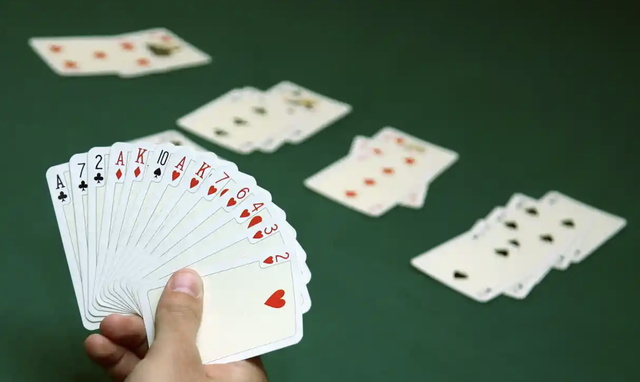News Information
After the AI Go software AlphaGo developed by Google DeepMind defeated the world champion, artificial intelligence has made new progress once again. According to foreign media reports, on March 25th, the artificial intelligence "NooK" developed by French startup NukkAI defeated eight world champions in a two-day bridge tournament held in Paris.
Bridge is a card game between two people. In the competition, human players use their own and online virtual partners' cards to compete against the artificial intelligence program NooK. The final score is the difference between humans and NooK, taken as the average in each competition. In the end, NooK had a winning rate of 83% in the 80 group matches, defeating 8 world champions to win the competition.

According to foreign media, the victory of artificial intelligence (AI) this time is of milestone significance. Because unlike one-on-one matches in chess and Go, in bridge games, AI cannot grasp complete information and requires more strategic skills to respond to the behavior of multiple players. Machine learning research experts say that NooK is different from AlphaGo programs in that AI needs to "interpret" the decisions of opponent players, and its learning approach is closer to that of humans.
Nivina Sinier is one of the human champions defeated by NooK, and she stated that this AI performs "well", even better than humans in understanding opponents and better capturing their mistakes. "Humans can only achieve this after gaining enough experience, and I was pleasantly surprised to find that robots have imitated typical human skills."
It is reported that the NukkAI team spent 5 years developing the NooK program. One of the co founders of the company, Veronick Wentos, stated that NooK is the "new generation of artificial intelligence" because bridge games rely on communication between partners, and NooK seems to be able to "explain" how it makes decisions to its partners.
Stephen Magleton, a machine learning professor at Imperial College London, also stated, "In recent years, most of the content heard by the public about machine learning has been based on black box systems such as AlphaGo, which only provide decision results but cannot explain how decisions are made to humans."
But NooK represents a "white box" (AI white box models can be explained through design, while corresponding black box systems - users, even developers, etc. - cannot explain their operating philosophy) or "neural symbol" methods, unlike other AI systems that typically train by playing billions of rounds of games, NooK is a hybrid of rule-based and deep learning: first learning game rules, and then continuously improving skills through practice. Magleton said, "This represents a fundamental and significant progress in the state of artificial intelligence systems.".
"With the advancement of artificial intelligence, a core challenge is to move beyond simple games with complete information to a more complex real world filled with human agents and incomplete information," said Gary Markus, founder of AI startup Geometric Intelligence. And bridge games can be seen as a mini version of the real world: incomplete information, partners and opponents, requiring explanatory rules. "The bridge game provides an important microcosm that is worth looking forward to (more progress in AI)."
The report points out that "interpretability" is a hot topic in artificial intelligence and is crucial in fields such as health and engineering. The AI system that defeated humans in the bridge game may be applied to a wider field, such as the autonomous vehicle passing the intersection, so that it can more flexibly read various information in the real environment.